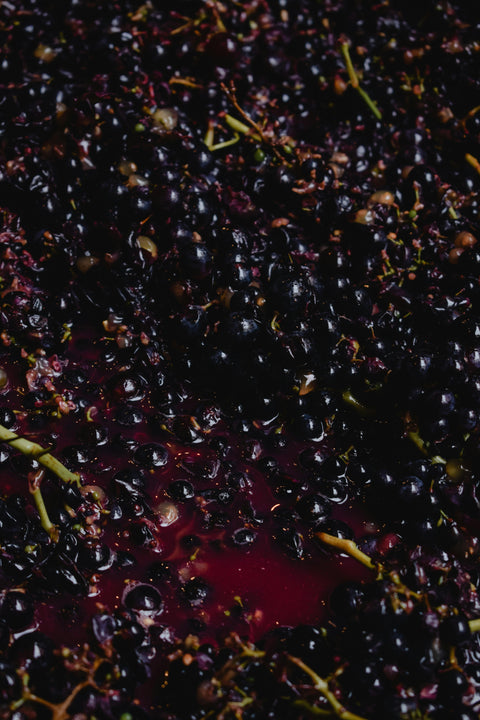We are on Trustpilot
We are rated Excellent, read what our customers are saying

Are Fermented Foods Actually Good for You?
Fermented foods have been a staple in many cultures for centuries, from kimchi in Korea to surströmming in Sweden. But with the growing focus on gut health, these foods are now taking center stage in the wellness world. Are they truly as beneficial as they’re claimed to be, or is this just another health trend? Let’s explore what science says.
Fermentation is a process where bacteria, yeast, or other microorganisms break down sugars, creating beneficial compounds like organic acids, vitamins, and probiotics. While many fermented foods contain probiotics—live bacteria that can support gut health—not all of them retain these beneficial microbes by the time they reach your plate.
If you're looking to add probiotics to your diet, it's important to check labels carefully. Look for terms like “live and active cultures” on yogurt, kefir, and kombucha bottles. Fermented vegetables like sauerkraut and kimchi should be found in the refrigerated section and labeled as “unpasteurized” for maximum probiotic benefits.
Beyond probiotics, fermented foods also produce beneficial postbiotics, such as short-chain fatty acids and bioactive peptides, which have been linked to improved digestion, lower inflammation, and enhanced nutrient absorption. Even if a fermented food has lost its live bacteria, these byproducts can still provide valuable health benefits.

Not All Fermented Foods Are Created Equal
While many people associate fermented foods with probiotics, it’s important to note that not all fermented foods contain beneficial bacteria by the time they are consumed. For example, beer, wine, coffee, chocolate, and sourdough bread all undergo fermentation, but they do not retain live probiotics due to further processing, baking, or alcohol content.
Yes, even without probiotics, fermented foods can still be highly nutritious. The fermentation process can:
If you’re specifically looking for gut-health benefits, focus on foods that contain live probiotics, such as yogurt, kefir, kimchi, unpasteurized sauerkraut, and tempeh.
Can Fermented Foods Actually Change Your Gut Microbiome?
The gut microbiome—home to trillions of bacteria, fungi, and other microbes—plays a crucial role in digestion, immunity, and overall health. A diverse microbiome is often linked to better metabolic function, lower inflammation, and even improved mental health. So, can eating fermented foods actually reshape this microbial ecosystem?
A 2021 study from Stanford University provided strong evidence that a diet rich in fermented foods can increase gut microbiome diversity. In the study, participants who ate fermented foods like kimchi, kefir, and yogurt for 10 weeks experienced:
A diverse gut microbiome is essential for optimal health, as different bacterial strains perform different functions. However, it’s important to note that the effects of fermented foods can vary based on the individual. Your gut microbiome is like a fingerprint—completely unique to you. While some people may experience significant benefits, others might notice more subtle effects.
The gut-brain connection is one of the most exciting areas of health research. Scientists now understand that gut bacteria play a crucial role in producing neurotransmitters, such as serotonin, dopamine, and GABA, which regulate mood and stress responses.
The gut is often referred to as the “second brain” because of the gut-brain axis, a two-way communication system between the digestive system and the brain. When gut bacteria are balanced, they can help regulate mood, stress levels, and cognitive function. This means that adding fermented foods to your diet may not only improve digestion but also support mental well-being.

Are Fermented Foods a Fad or the Future of Health?
Fermented foods have been around for centuries, but their rise in popularity has made them a modern health trend. From kombucha bars to probiotic-rich snack foods, the global interest in fermented products is growing rapidly. But is this just a passing fad, or is it here to stay?
While some skepticism exists, most health professionals agree that including fermented foods as part of a balanced diet can provide important benefits. However, eating fermented foods alone is not a cure-all. To maximize gut health, it’s essential to also consume prebiotics—fiber-rich foods like onions, garlic, and whole grains that nourish beneficial bacteria.
Scandinavian countries have a rich tradition of fermented foods, from filmjölk (fermented dairy) to surdeg (sourdough bread) and surströmming (fermented herring). These foods have long been valued for their ability to preserve nutrients and enhance flavor, and their health benefits are now gaining global recognition.